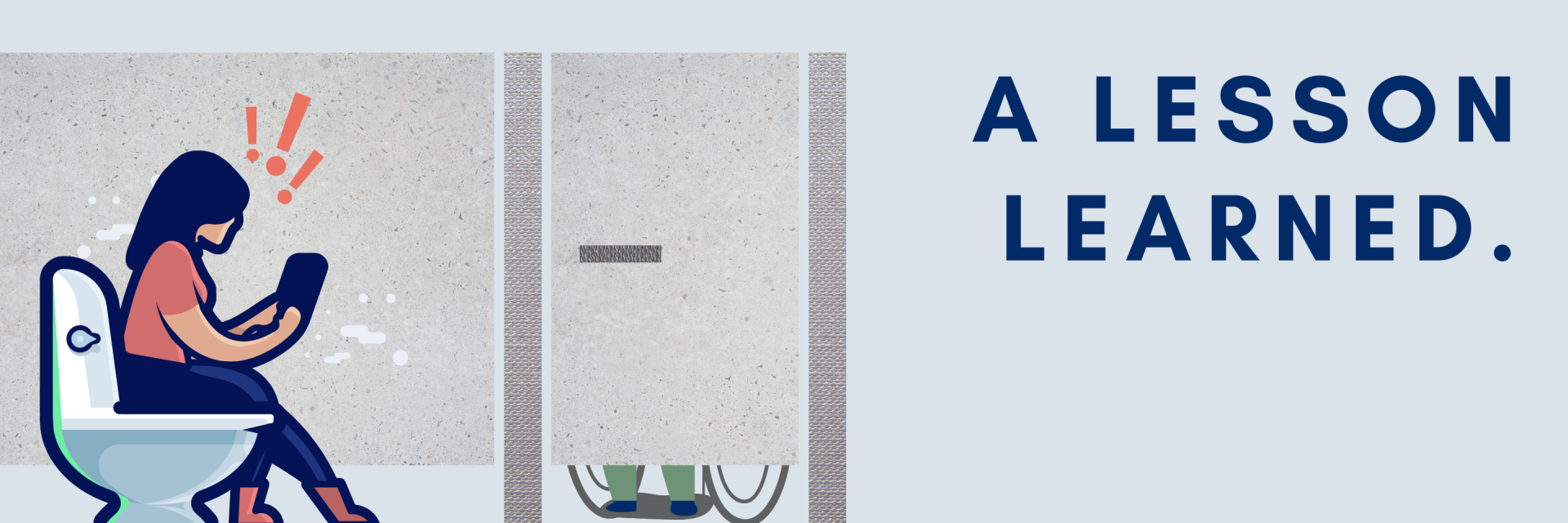
Prior to my time here at the Disabilities & Computing Program (DCP), my exposure to issues related to disability was almost non-existent. Yet now, every day I am learning more and more about the privileges I hold as an able-bodied individual, and how to be an ally to the DCP and its mission. I am no saint or savior for the disabled community. I’ve had my moments of poor decision-making and gut-wrenchingly awkward encounters with disabled folks—especially a fortunately unfortunate incident.
Right after my first year at UCLA, I landed my first job: a cashier at an amusement park. It was an exciting milestone of my post-high school career where I served ice-cold lemonade and Coca-Colas throughout the warm summer days. After shifts, I could hop on any ride for free as many times as I wanted. It was the kind of setting for a cute teenage summer movie trope. My uniform, however, was not cute. Park policy mandated that I came into work in my oversized, rough, and uncomfortable outfit—I couldn’t enter the park without it. Rather than sitting through an hour bus commute in my distasteful uniform, I would change into my work outfit at a pharmacy across the street from work.
I thought I was so slick. I cheated the system and could commute to work in comfort. Best of all? I always used the wheelchair accessible stall to have more room to change...
One morning, as I went through my daily outfit routine, another woman entered the bathroom. She waited and waited even though another stall was available for use. Eventually, the woman approached the stall I was in and my stomach dropped. From behind the stall doors, I could see her wheelchair peak out from underneath. I immediately felt an immense sense of guilt and embarrassment. Here was this woman waiting to use the only accessible stall available to her and I was obnoxiously occupying the space with my uniform pants barely on.
I quickly changed into the rest of my uniform and prepared for my walk of shame. When I opened the stall door, the woman was no longer in her wheelchair and the stall adjacent to mine was half open. Everything happened in slow-motion as I realized that the woman was struggling to use the inaccessible bathroom stall. The worst part? I was so embarrassed that I just left without saying a single word.
Why am I telling you this story? As a PSA to not use wheelchair accessible stalls? Partly, yes—definitely avoid using the wheelchair accessible stall unless it’s the only one available.
I am sharing this story on the Internet because I want to emphasize that even the smallest decisions can create the largest of inconveniences to a person with a disability. As a student involved in multiple organizations, I’ve hosted many inaccessible events in the past without realizing it. And I know I’m not the only one to have done so. Oftentimes, we able-bodied folks may not even realize the inconveniences that we inadvertently project onto the disabled community. Being unaware of such disability-related issues does not make you a bad person. Having privileges like being an able-bodied individual does not always put you in the position of an oppressor. But these also aren’t excuses. I am completely guilty of limiting opportunities, programs, and events for students with disabilities because of my lack of consideration and awareness. I am owning up to this, and am now constantly working to act and make decisions with accessibility in mind.
By becoming a more informed and conscientious individual, you can prevent a cycle of inaccessibility. The fact that you happened to find this blog post and have actually read it this far (thanks for sticking around!) shows that you’re taking an initiative to learn more about disability and accessibility. My suggestion to you? Check out other blogs we have at the DCP! I strongly believe in the power of storytelling to promote social change and action. Hopefully, after reading this blog or other HotTakes, you’ve learned a little more about disability culture or disability ally-ship to help us promote accessibility at UCLA or elsewhere.

